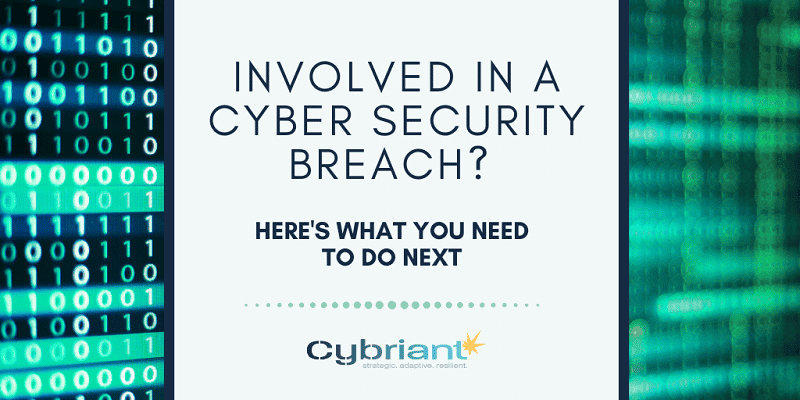Hopefully, you will never be involved in a data breach, but in a world of constant cybercrime and increasing levels of intrusion, being involved in such an incident seems all but inevitable.
With Equifax as a perfect example of how a trusted provider can be breached, it’s important that you If you want to protect yourself, especially if you potentially share personal data on corporate devices. Signing up for a credit monitoring service is a smart thing to do, but that is only the beginning. Once you are signed up for the service, you will need to watch your email for updates, so you can get a jump start on the bad guys and stay one step ahead of the identity thieves.
In a perfect world, that email notification will never come, but if it does, you need to be ready.
Steps to Take After a Data Breach
Here are some critical steps you should take if you are notified of a data breach involving your own data.
Find Out What Information Has Been Leaked
Some data is more dangerous than others, so it is important to find out exactly what has been leaked. When you are notified of the data breach, you should see information on exactly which pieces of data may have been compromised, and what you do next will depend in part on which information is now available to hackers and cybercriminals.
If you are lucky, the information leaked will be relatively innocuous. Having your email address revealed may be annoying, but it is unlikely to lead to serious consequences unless the password has been revealed as well. Even so, you might want to reset the credentials on your email address or consider changing accounts to stop a flood of spam.
In other cases, the information revealed will be much more extensive, and that could put you at greater risk. If your Social Security number has been revealed, for instance, you are at high risk for identity theft and having hackers open fake accounts in your name. Knowing what has been revealed is a key first step and something you should do right away.
Change Impacted Passwords Immediately
Passwords are prime targets for identity thieves and online criminals, and many data breaches involve the selling of compromised credentials. If your passwords have been revealed in a data breach, you need to change them immediately.
Depending on how you run your cyber life, it may not be enough to change the password at the impacted site. If you have used the same password at multiple websites, you will want to change all of those credentials right away. And when you do, make sure you use unique credentials for every site to avoid a repeat.
Turn on Two-Factor Authentication
Two-factor authentication provides an extra layer of security by requiring an extra step during the login process. In addition to the standard username and password, you will need to enter a code sent to your smartphone, providing additional protection for all your accounts.
Many websites now offer two-factor authentication, and turning it on is a smart thing to do in the wake of a data breach. That way even if a cybercriminal buys your compromised credentials online, they will be unable to access your accounts without the additional security code.
Consider Using a Password Manager
Using the same password at multiple sites can be dangerous, and security experts recommend setting up a separate set of credentials for every site you visit. Unfortunately, keeping track of all those user IDs and passwords can be a full-time job, and it is tempting to fall back into the same old habits after the current crisis has passed.
If you want to stay safer online and protect all of your accounts, consider using a password manager. Password managers create a unique set of credentials on demand, keeping track of the information in an encrypted database. All you need to access it all is a single master password, so you only have one set of credentials to remember.
Sign Up for Transaction Alerts
Transaction alerts provide you with instant notifications of purchases, withdrawals, and other activity on your accounts. Signing up for those alerts is a smart thing to do, especially if your accounts may have been compromised.
Once you sign up for transaction alerts, you will get a notification on your smartphone whenever something happens in your account. If you see a charge you do not recognize or a withdrawal you did not authorize, you can contact the bank right away to shut it down.
Think About Freezing Your Credit Report
If you have been involved in a data breach, you may want to freeze your credit report, especially if you do not plan to apply for a loan or credit card in the near future. Freezing your credit report is a major step, but it may be a necessary one to protect your identity and your finances.
Once you freeze your credit report, no one, including you, will be able to access your file or open additional accounts. That can make life difficult when it is time to apply for a car loan or mortgage, but if you do not need any additional credit, putting a temporary freeze in place could make sense.
Being involved in a data breach can be frightening, but prompt action could mitigate the damage and prevent the problem from getting worse. What you do in the wake of a data breach matters more than you might think, and the actions you take could protect you from hackers, identity thieves, and other nefarious actors.



